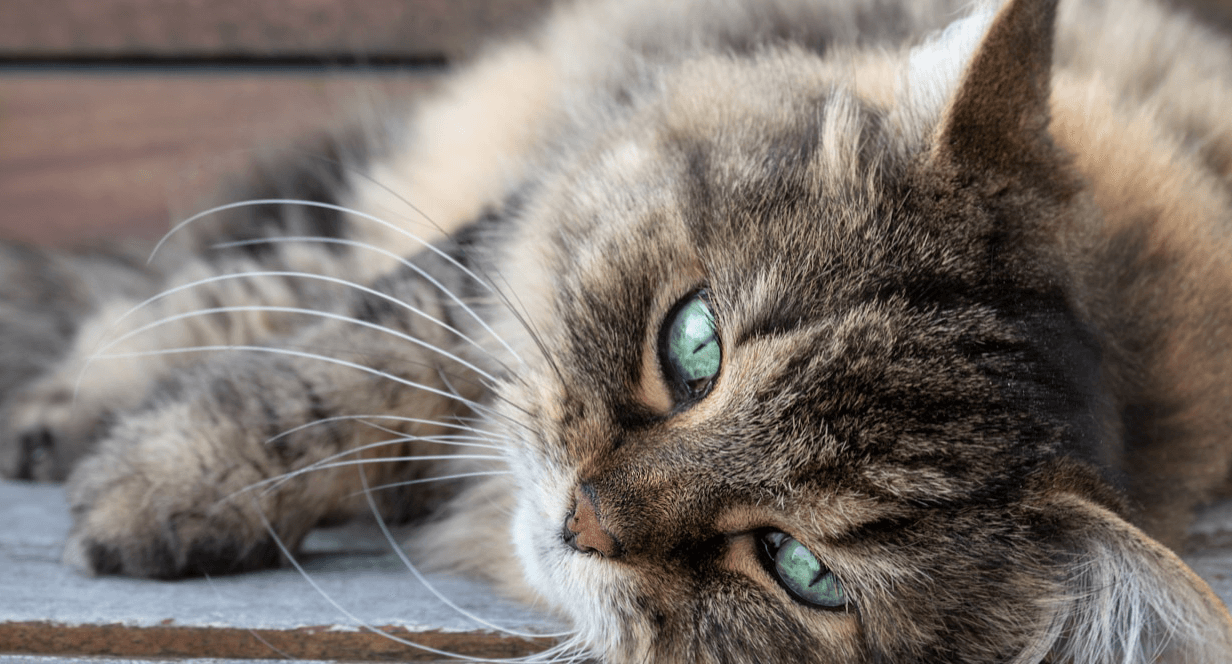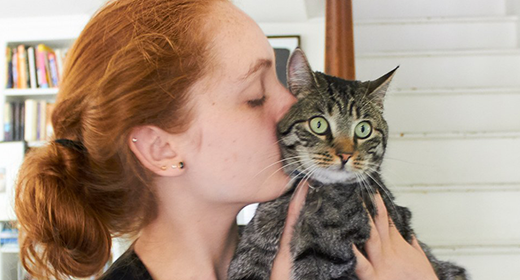

No matter how much you want them to stay adorable kittens, every cat eventually grows up to become an adorable senior. In fact, thanks to improvements in medical care and nutrition, cats are now living longer and healthier lives than ever before.
But as they age, your cat’s needs can change. By staying aware of the common signs of aging in cats and making a few adjustments to help them stay comfortable, you can turn your cat’s older years into their golden years.
Every feline is unique, but cats are usually considered senior once they reach 7 years old. Your older cat isn’t going to start leaving the blinker on or hiking their pants up to their armpits, but there are signs that may indicate your cat is getting on in years.
Older cats often eat less as their senses of smell and taste diminish. Sudden weight loss or gain could be a sign that something is off.
We all know cats love to sleep, but if yours is sleeping more than usual and doesn’t show the same interest in playing or other activities, it could indicate lower energy levels. Not being able to jump or climb to their favorite spots could be a sign of arthritis as well.
It’s a good idea to check your older cat’s teeth more often, looking for any changes in appearance. If they’re pawing at their mouth or aren’t eating as much, it could mean something is amiss. If you suspect there’s an issue, consult your vet.
With a few simple changes, you can keep your older cat happy and comfortable for many years to come — here’s how.
It can be harder for older cats to groom themselves as thoroughly as before. You can lend a helping hand by giving them regular brushings. Make sure to keep their nails trimmed, too. It’s a great way to spend some extra quality time together.
After years of leaping onto the kitchen counter when you weren’t looking, your senior kitty might have trouble getting to their favorite spots. You may want to place a ramp or folding steps near their favorite couch or bed so they don’t have to jump as much. Make sure they have easy access to their food and litter box, too. Adding a litter box on each floor of your house can help prevent accidents.
Older cats love their routines. The more you’re able to keep things consistent and predictable, the calmer and less frightened they’ll be.
One cat year is like four human years, so a lot can happen in that span, especially in older cats. More frequent vet exams can detect health issues before they become serious.
Cats crave warmth. Make sure your grandcat has access to a number of sunny spots or heating vents to keep them toasty. Leave comfortable, warm blankets around your home for lounging, and consider bumping up the thermostat a degree or two for them — even though their favorite furnace will always be your lap.


Is your feline leaving puddles of urine in your bathtub or on your tile floors? Making lots (and lots) of trips to the litter box? Or crying out in pain when they pee?
Sounds like
tinkling trouble.
Your furry friend might have feline lower urinary tract disease (FLUTD), which is just scientific jargon for a collection of painful conditions that can wreak havoc on your kitty’s bladder and/or urethra.
Some of the most common FLUTD diseases include urinary tract infections, urinary stones caused by a buildup of minerals, obstructions within the urethra or an inflamed bladder.
Keep your
eyes peeled for
peeing problems ...
The American Veterinary Medical Association says to watch for these major signs:
Get your cat back
on the right tract.
First things first, if your feline seems to be in a lot of pain or isn’t able to pee at all, get to the vet — stat!
Your cat might have a urethral obstruction, a life-threatening condition that your veterinarian must treat quickly!
Seriously, don’t dillydally.
Take this old adage to heart:
“An ounce of prevention is worth a pound of cure.”